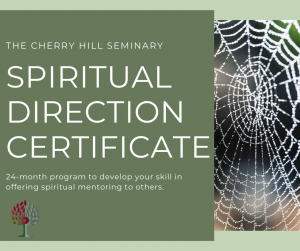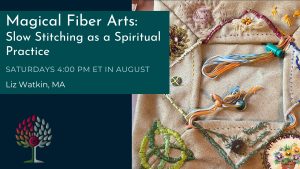 Format
Format
Students are admitted into a cohort, with a minimum size of ten persons. The two-year program is divided into 4 quarters and includes live online meetings with lectures, discussion, case studies, role playing and guest speakers, covering the following content.
Time Commitment
6 hours per month for online discussions and assignments for submission.
5 hours per month for face-to-face meetings with the whole cohort/small groups/a study-buddy
1 hour per month for your spiritual director
3 hours per month for reviewing material
Budget time throughout each core for interviews, one retreat per core, a book per core, an elective, an ethics course ( then during year two, seeing seekers and a supervisor.)
Calendar
Admissions are rolling (year-round) with new cohorts beginning in the fall or spring when a minimum enrollment is reached.
Cost
$300 tuition per quarter for 8 months. You will be billed on the 1st day of each quarter and payment is due upon receipt of invoice. Late charges apply.
The cost of the “second course of your own choosing.”
The cost of the spiritual companion/supervisor you meet with (outside of CHS).
Program Outline
Download the Student Handbook and Course Catalog for detailed information.
Apply Now

Rev. Amy Beltaine, M.Div.
Our Spiritual Direction Certificate Program Chair and primary instructor is Rev. Amy Beltaine, M.Div. Amy is a graduate of Unitarian Universalist Meadville Lombard School for the Ministry, Amy is a professional Spiritual Director and Supervisor, serving on the coordinating committee of the UU Spiritual Direction Network, and recent President of the Covenant of UU Pagans. Click to learn more about her.

 Format
Format
